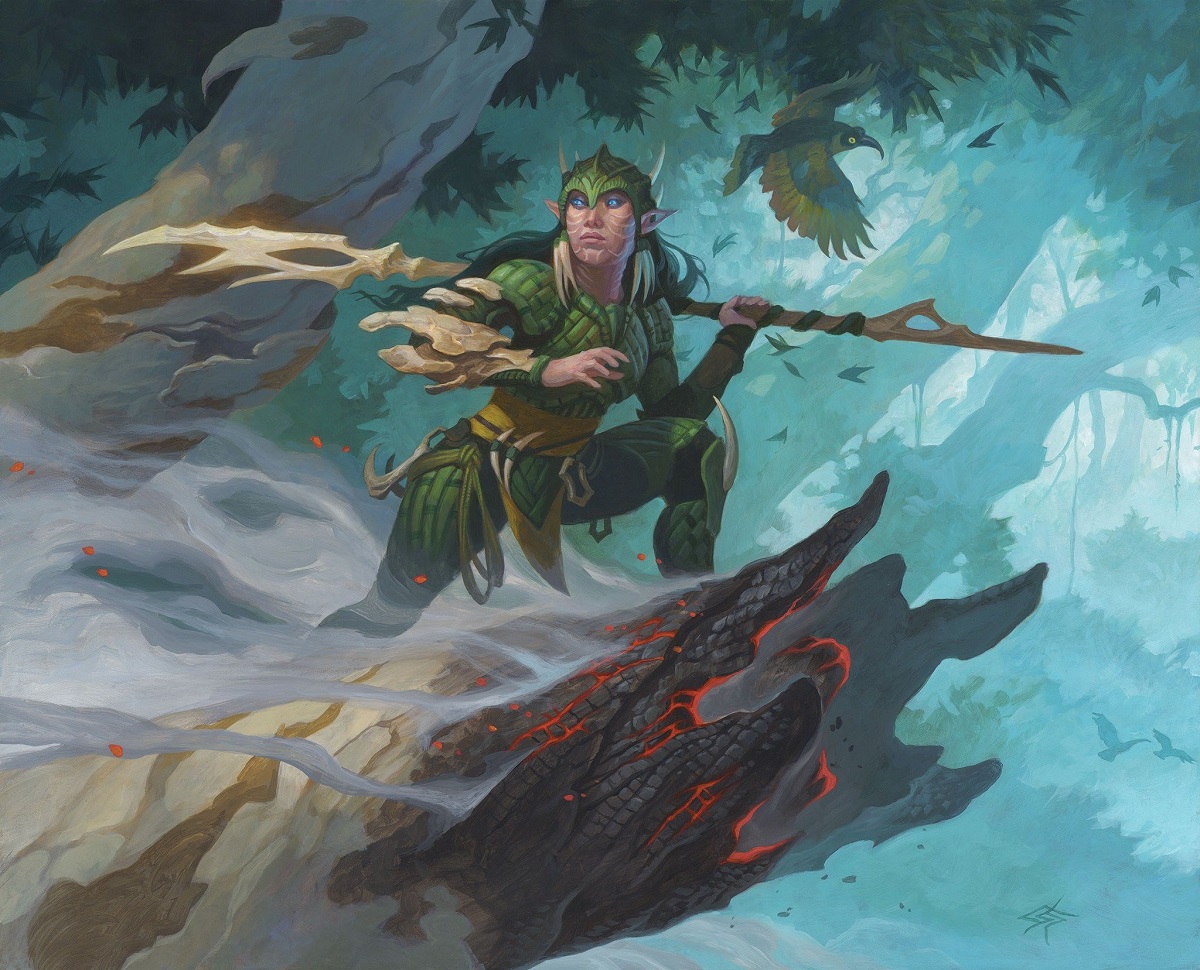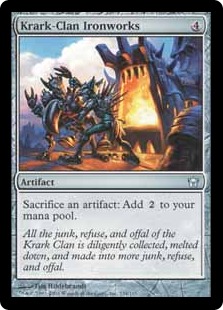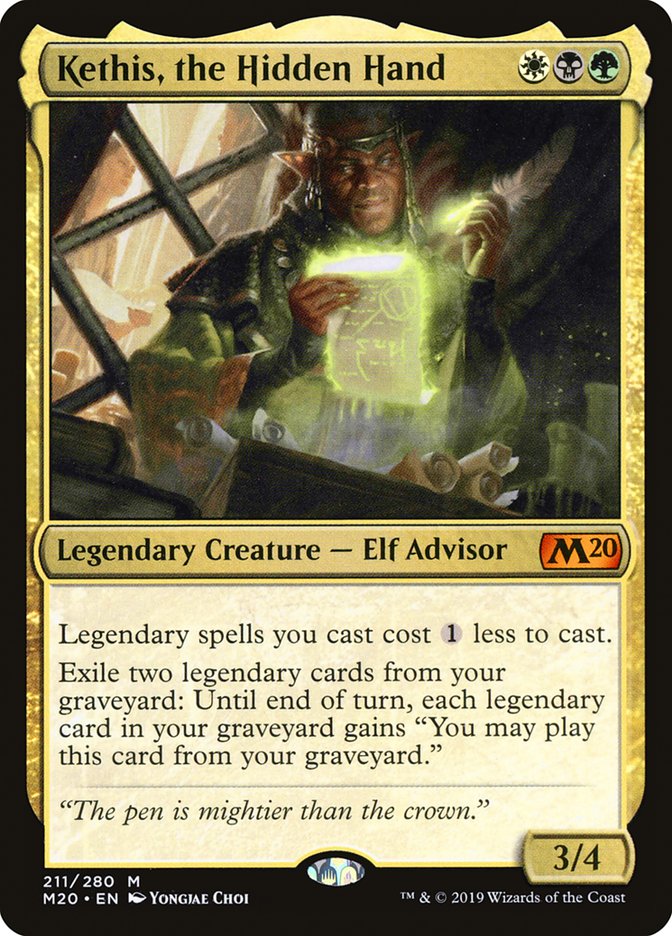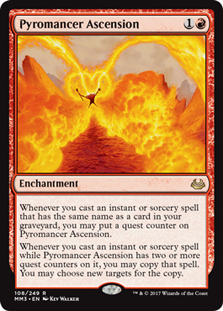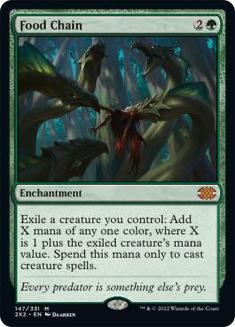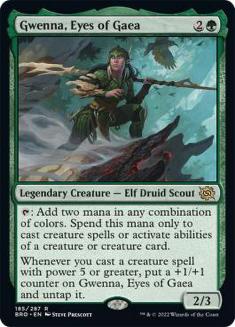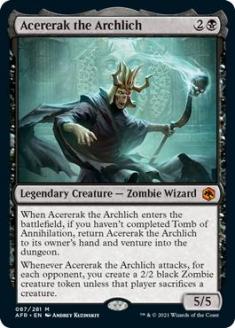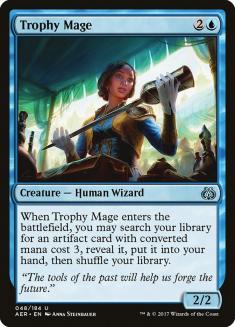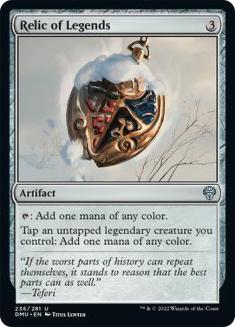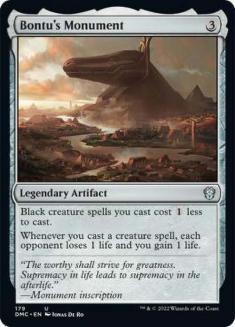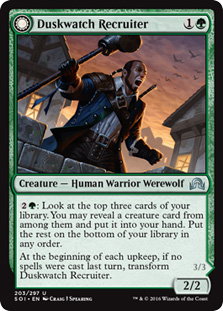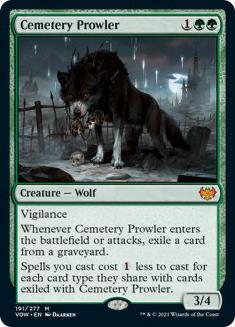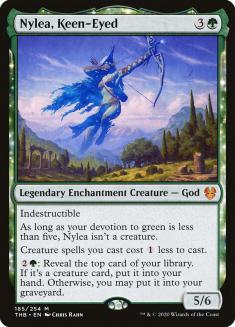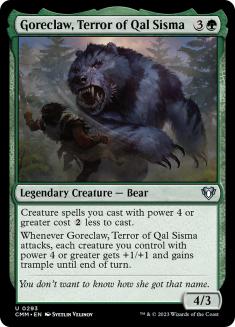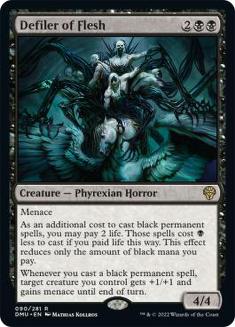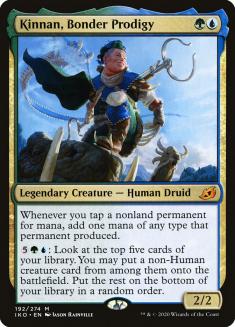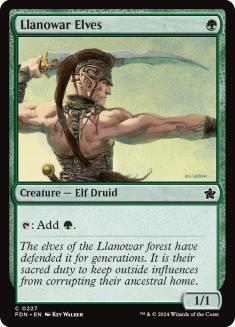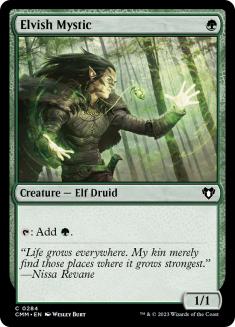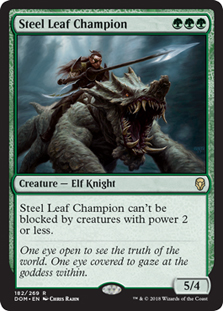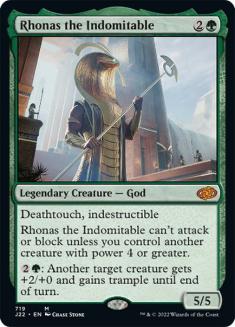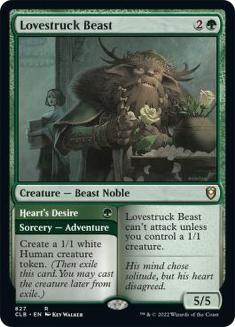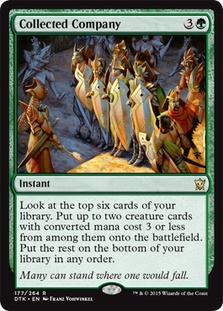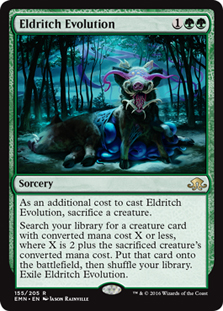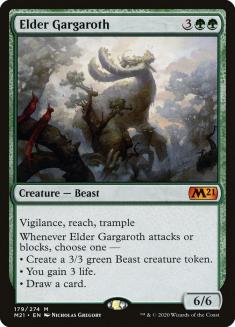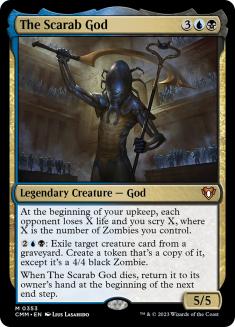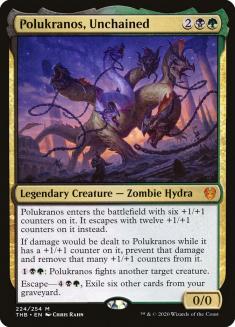As a format gets larger, one question gets louder: what if we’re all missing something? Every deckbuilder’s dream is finding the next breakout combo deck that relied on some forgotten gem from the farthest reaches of the card pool.
Krark-Clan Ironworks languished in obscurity in Modern for years until Scrap Trawler launched it into the top tier of Modern – not that we realized it at the time (our own Shaheen Soorani even tried to warn us!). Once Matt Nass put the deck on the map, it quickly became so threatening that its banning was inevitable. In a Standard format that seemed solved on the verge of rotation, Kethis Combo took a qualifier weekend by storm and made the most of its short time in the sun.
Other combo decks are known quantities held back by logistical problems. Most decks in Eternal formats are forged in the crucible of Magic Online (MTGO), where you can’t demonstrate a loop and jump straight to the conclusion; if you want to take game actions, you have to do them yourself. This can be a real limiting factor for combo decks that have to sit through a lot of those game actions per loop or many iterations of that loop, especially without the efficiency of the autotapper on MTG Arena (where the rope can present its own problem). As a result, decks like Food Chain Combo in Legacy remain underrepresented on MTGO compared to paper play, and unrefined to boot.
Today’s subject certainly has that issue, but might have the potential to be one of those breakout stars.
Enter Gwenna, Eyes of Gaea
Gwenna, Eyes of Gaea is a Commander superstar with a more focused purpose in Constructed as a way to achieve a specific goal: casting Acererak the Archlich over and over (and over…). This is an easy shortcut for various combo decks to win the game – it makes Aluren in Legacy a two-card combo deck for the first time, for example – and it doesn’t take much to get there in Pioneer. You can’t realistically make Acererak free with a single card, but various pairs of enablers can work together. Gwenna accounts for two of that three mana, including the color requirement. Lots of cards can close that gap.
You can get that discount with Bontu’s Monument or Relic of Legends (as Acererak can tap itself to add mana with Relic in response to its own trigger), with Trophy Mage letting cards that find creatures unlock those effects too. With enough copies of Relic and other discounters, you can bypass the need for Gwenna, your most vulnerable combo piece as a relatively small creature that needs to survive a turn to lose summoning sickness.
Gwenna’s Friends
There are plenty of other more-or-less qualified applicants for that role. Duskwatch Recruiter stands out as a cheap creature that can also dig for other combo pieces, but transforming it for the discount isn’t always trivial. Cemetery Prowler is the best of the bunch on its own terms, and its brand of graveyard hate can be helpful against decks like Abzan Greasefang or Izzet Phoenix.
Goreclaw, Terror of Qal Sisma is the only non-Gwenna card to offer a two-mana discount, which lets it team up with Relic of Legends to complete the loop. Defiler of Flesh isn’t quite analogous to Defiler of Instinct in the Grinning Ignus deck, as each loop here doesn’t do much on its own and the life payment adds up quickly.
The real star here is Kinnan, Bonder Prodigy – a card that looks dangerous but has never delivered on that threat. Kinnan lets Gwenna pay Acererak’s full cost, but also enhances other mana creatures and gives you a sink for all that mana (including from Gwenna, whose mana can pay for creatures’ activated abilities) that can dig you towards the missing piece.
To add insult to injury, the interaction between Kinnan and Gwenna is currently bugged on MTGO and is not scheduled for a fix anytime soon – you can’t play a Kinnan-centric list there even if you were willing to put your wrists through that much pain!
Dungeon Delving
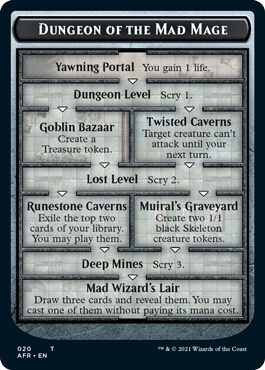
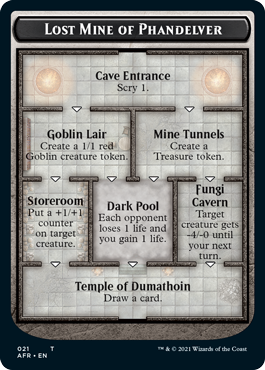
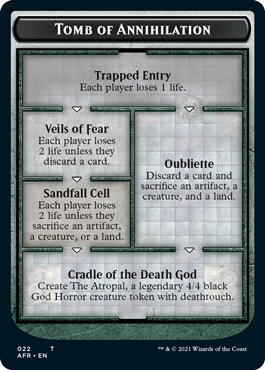
If you just care about the combo, the details of the dungeons don’t matter much, but one big selling point of this deck is that your combo pieces can do good work together even before you’re ready to go off – here, by venturing into the dungeon manually on your own time.
Consider a start like this:
Turn 1: Land. Elvish Mystic.
Turn 2: Land. Gwenna, Eyes of Gaea.
Turn 3: Land. You now have six mana to funnel into Acererak.
Cast Acererak (three mana left), untap Gwenna (one counter), venture into the dungeon (one room). Tap Gwenna (five mana left).
Cast Acererak (two mana left), untap Gwenna (two counters), venture into the dungeon (two rooms). Tap Gwenna (four mana left).
Cast Acererak (one mana left), untap Gwenna (three counters), venture into the dungeon (three rooms). Tap Gwenna (three mana left).
Cast Acererak (no mana left), untap Gwenna (four counters), venture into the dungeon (four rooms).
So… What Does That Get Us?
This speedrun through the dungeon can yield a range of outcomes, depending on where we started.
Dungeon of the Mad Mage: You gain 1 life. Scry 1, then Scry 2. Either stop a creature from attacking you next turn or create a Treasure, which gives you the mana for another loop → create two 1/1 tokens.
Lost Mine of Phandelver: Scry 1. Draw a card. Then either create a 1/1 token or a Treasure (letting you venture into the first room of another dungeon when you’re done here) and take your pick of the three penultimate rooms.
Tomb of Annihilation: Each player loses 1 life, then each player probably loses some more life. Create a 4/4 with deathtouch, keeping Acererak on the battlefield.
You can either keep Acererak in hand, ready for another adventure next turn, while racking up various small benefits, or just keep it on the battlefield along with a 4/4 and your gigantic Gwenna, giving you sixteen total power by the end of Turn 3!
This makes the whole project look more realistic. If your two-card combo does a lot by itself and can add on the extra piece when that’s not enough, that’s much more compelling than a three-card combo that’s weak to removal.
Now we need to decide what to surround this combo with.
Supporting Players
The eight-Elves package is one of the best ways to start a deck in Pioneer and it’s a perfect fit here. Our main combo enabler costs three mana, and we plan on having other mana sinks and possibly Kinnan too.
Once you’re an eight-Elves deck with a card that checks for creatures with five power, it’s tempting to fit the combo in a Stompy shell with the cast that has led that strategy to success before. That has fallen out of favour as a dedicated plan, and a half-hearted version that sometimes draws a useless combo piece but still runs into the same removal that hits the combo is unlikely to catch anyone off-guard. By contrast, Lovestruck Beast stands out as a generally solid card that you’re happier to see in these fair games and is a good candidate for this deck.
Company and Company
Collected Company is an automatic consideration for green creature decks, especially creature combo decks where both main pieces are eligible hits. Company lets you go toe to toe with attrition decks, and putting Gwenna onto the battlefield at the end of the opponent’s turn is a great way to protect it from a lot of Pioneer’s removal.
Company is also a very demanding card – you need enough creatures in your deck that are good hits to justify the investment (and your eight Elves barely count here). Full sets of Company and another creature tutor like Chord of Calling already gets you close to your limit and that’s before you look at other enablers like Relic of Legends or Goreclaw, Terror of Qal Sisma. Once you’re a committed Company deck every new inclusion is evaluated with Company in mind.
Eldritch Evolution directly finds whatever you’re missing and lets you convert a Turn 1 Elf into Gwenna on Turn 2 to set up your fastest draws. Your combo pieces being so cheap puts them in range of Evolution as well as Company. With these eight tutors and other forms of redundancy, such as Fauna Shaman, alongside some backup plan, you have the recipe for a scarily consistent deck.
The Backup Plan
What should that backup plan look like? Ideally, you want a creature that triggers Gwenna, can be cast quickly in games without Gwenna, is a hit for Kinnan, and can actually threaten to take over the game by itself. Elder Gargaroth is an obvious front-runner – many other decks have leaned on Gargaroth in anything resembling a ‘fair’ matchup – but The Scarab God is an older favourite that provides a more resilient option against those removal-heavy decks like Rakdos Midrange.
The First Pass
A first pass at a list might look like this:
Creatures (30)
- 4 Llanowar Elves
- 2 Fauna Shaman
- 4 Elvish Mystic
- 2 Duskwatch Recruiter
- 1 Goreclaw, Terror of Qal Sisma
- 4 Kinnan, Bonder Prodigy
- 1 Elder Gargaroth
- 4 Acererak the Archlich
- 4 Cemetery Prowler
- 4 Gwenna, Eyes of Gaea
Lands (22)
Spells (8)

This idea sounded alluring but elusive before I started brainstorming for this article, and writing about it has only made me more intrigued. I wouldn’t be surprised to see Gwenna Combo become a player in Pioneer over the next few months – or for the lists that do well to look completely different from this one. For a deck that does something so specific, there are many ways to chase that goal – and it’s one worth chasing.

